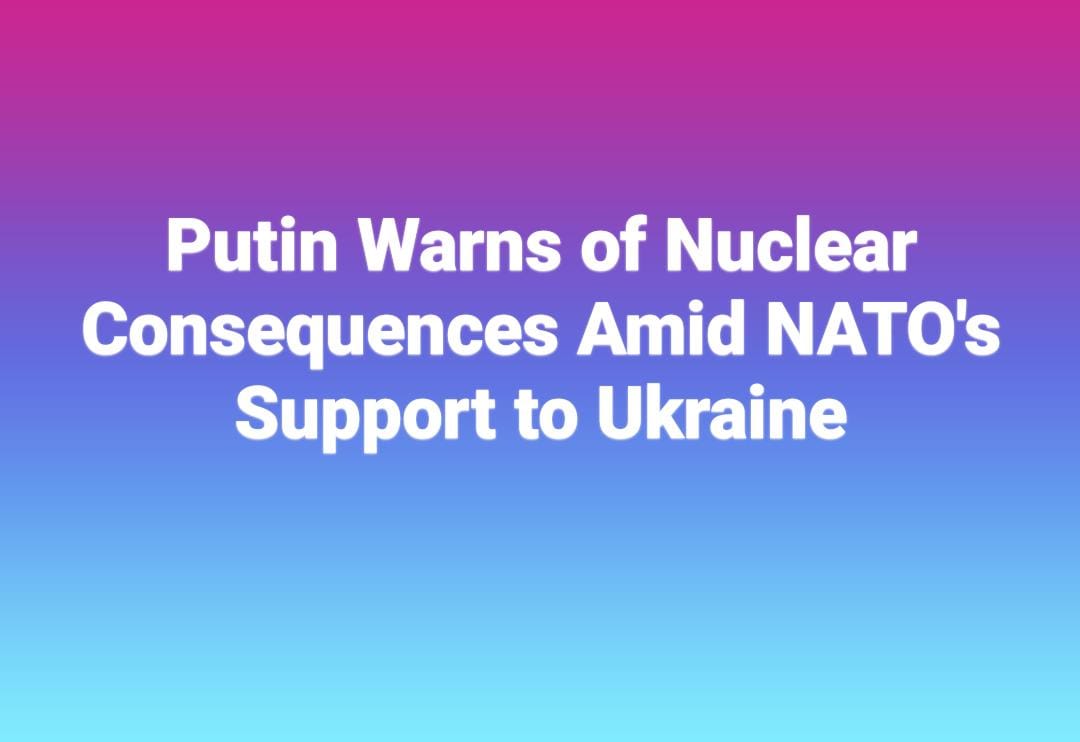International desk
6 July
Sandeep Dhand Ludhiana
In a recent statement, Russian President Vladimir Putin asserted that he does not need to resort to nuclear weapons to secure a victory against Ukraine. However, he cautioned that Western nations supporting Ukraine should not underestimate Moscow’s potential to use such weapons if provoked.
Putin’s warning came as NATO allies are stepping up efforts to assist Ukrainian military forces. The Russian leader conveyed a clear message to NATO members: aiding Ukraine could lead to direct confrontation with Russia, escalating into a nuclear conflict.

Moscow recently conducted strategic exercises with its ally Belarus in southern Russia, showcasing their military cooperation. Meanwhile, Western countries are contemplating deploying NATO troops in Ukraine and permitting the use of long-range weapons for limited strikes within Russian territory.
This development highlights the increasing tensions between Russia and the West over the ongoing conflict in Ukraine. The possibility of a nuclear standoff remains a looming threat, with both sides engaged in a high-stakes power struggle.
As NATO considers further support for Ukraine, the global community watches closely, aware that the decisions made in the coming weeks could have profound implications for international security and stability.
